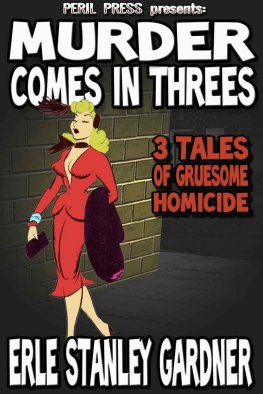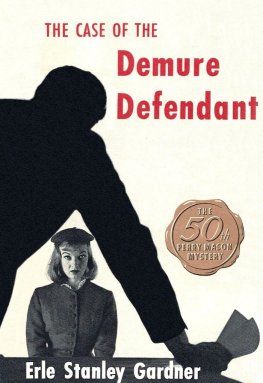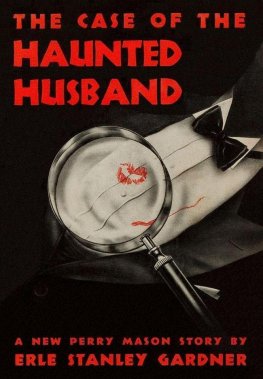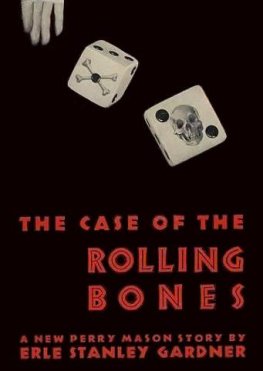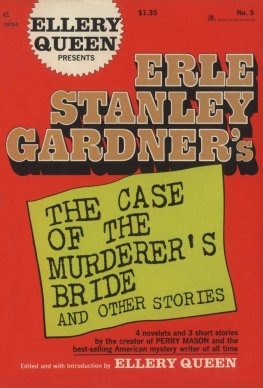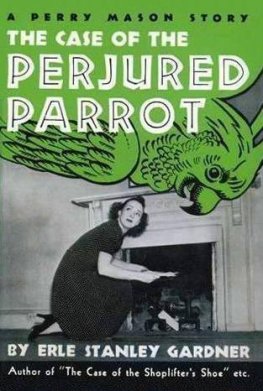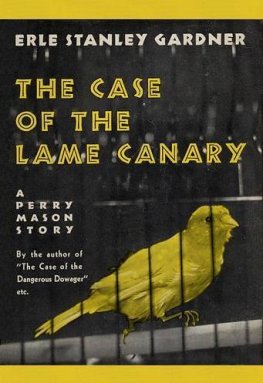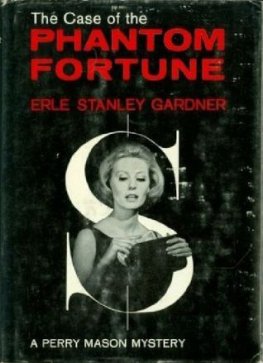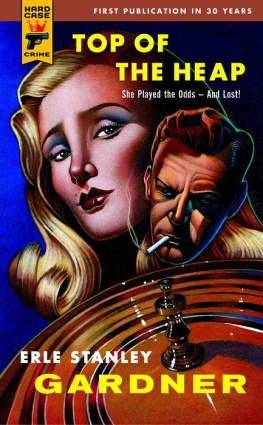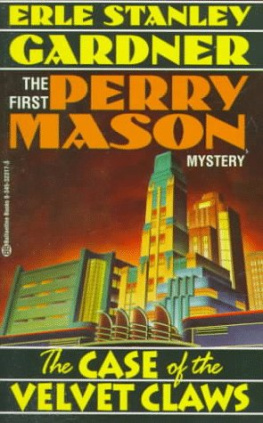THE CASE OF THE KNOCKOUT BULLET
by Erle Stanley Gardner
By a twist of irony, the famed sports celebrity destined for death at the hand of a murderer, that autumn morning long ago, had been known to millions as "The Michigan Assassin."
It was an appellation in no way related to the crime of murder, in its customary meaning. Sportswriters had created it as a tag for a brilliant young boxer as he fought his way in the prize ring to a world's championship title.
So, oddly, in this case it was to be the "assassin" who would be the victim. And it was a bullet instead of the fist of an opponent that delivered the knockout that ended forever the career of Stanley Ketchel, world's middleweight champion of his day.
This case always has intrigued me, for a number of reasons.
First, it is a murder yarn right down the alley of any writer of mystery stories. Second, in my youth I was greatly interested in boxing and for a time fancied myself a fighter of some promise. Ketchel's career was one that would appeal to any American youth.
Approximately my own age, Ketchel had proved himself an athlete of great personal integrity, with the exceptional skill and fighting heart that has characterized true champions. Virile and handsome, with a magnificently chiseled physique, he was not only the idol of the boys of the land but, wherever he went, he found himself the target of starry-eyed women who fancied him as the answer to their romantic prayers.
But perhaps the most unusual element of all is the fact that today almost no one appears to be aware that murder wrote the final chapter in the record books of one of the greats in the history of boxingmurder that lashed out from far beyond the ropes and canvas of the ring.
It was a crisp fall morningOctober 15, 1910in the Ozarks of Southern Missouri. Stanley Ketchel, middleweight champion of the world, rose early to take his accustomed road work along the by-ways of a cattle ranch to which he had quietly withdrawn a few weeks earlier. The ranch was owned by R. P. Dickerson, Ketchel's close personal friend and financial advisor. It was in Wright County, 42 miles from the city of Springfield.
Ketchel, upset and deeply annoyed by furtive but persistent overtures that had been made to him in New York by a Broadway gambling syndicate that he throw a fight, had gone to the ranch after publicly disclosing the efforts that had been made to draw him into the gambling conspiracy. He had been extremely bitter in denouncing the gamblers.
He left the ranch house shortly after 4 A.M., returning some two hours later after completing his exercise. The 20-odd hands on the place meantime had risen and gone about their duties.
Ketchel called through a window to the cook, requesting that a breakfast of ham, eggs and a glass of milk be served him on the porch. Then he went to his bedroom and thence on to the ranch wash-shed to bathe.
In the bedroom, it developed later, he put on a dresser a mysterious object that was to inject an almost occult touch into events about to occur.
Not far from the house, the foreman, Charles E. Bailey, and another employe, John Nolen, were piling logs in a woodshed. Shortly after 6:30 o'clock they heard a gunshot. Because the noise had seemed to come from in or near the house, Bailey and Nolen hurried to investigate.
The porch was unoccupied. Silverware lay on the floor. The table-cloth was in disarray. The glass of milk had been overturned. The ham and eggs were untouched. On the floor the two men discovered several small spots of blood. These formed a trail leading inside the house. In his room, sprawled face up across the bed, lay Ketchel. He was breathing but obviously dying.
As the two men bent over him, the champion gasped: "... got me!" Then he was gone.
Sheriff C. B. Shields was notified of the tragedy, as was also the fabulous Wilson Mizner, noted wit, story-teller and Ketchel's business manager, in New York. News of Ketchel's death stunned the sports world. Almost at once it appeared virtually certain the killing was an outgrowth, in some manner, of Ketchel's enraged denunciation of the Broadway gamblers.
Meantime Sheriff Shields, a methodical investigator and one of the outstanding law enforcement officers of his day in that part of the nation, took note of several odd circumstances at the ranch.
Ketchel customarily wore a holstered pistol while hiking in the woods around the ranch. The holster was on his belt, but his pistol was missing. Also mysteriously vanished was a .22 rifle Ketchel had received a few days earlier from his brother, Leon, in Michigan. Shields determined that Ketchel had cashed a substantial checkin the neighborhood of $1,000the day before. But there was no money in his pockets. Also gone was a diamond stickpin, valued at $800, which the champion always wore.
But the most fascinating discovery at this stage of the inquiry was a bracelet Ketchel wore habitually, both in the ring and elsewhere, as a luck charm. The sheriff found it on the bedroom dresser. It was fashioned out of tail-hair from a sacred elephant in India, mounted in gold. It had been given to the champion by a fan who had acquired it from a fakir in Calcutta.
According to its mystic legend the bracelet was supposed to have strange powers of protecting its wearer from bodily harm. Ketchel had prized the trinket immensely and always wore it. Apparently he had put the charm aside when he prepared for his morning bath. The bracelet and the legend about it aroused much curiosity.
A posse was assembled and a search was launched throughout the ranch and its surroundings. No one could be found who had seen anyone or anything untoward. Sheriff Shields questioned Daisy Johnson, the cook, but she was unable to shed any helpful light. She said Ketchel had appeared in excellent spirits when he called his breakfast order through the window. She had set out his food while he was bathing and then returned to her cook shack, a short distance from the central house. She said she had not heard the shot.
The wound which brought death, the sheriff determined, was caused by a small-caliber slugapparently a .22that had pierced the champion's lungs, severing a major artery. It had been fired at close range from the back. From the angle of the wound and position of the table and chair, Shields deduced the killer had stood six to eight feet behind the fighter, at the entrance of the porch. The evidence supported the conclusion that the mortally wounded fighter had grappled with the killer after the shot was fired. The struggle then had moved on to the near-by bedroom.
In New York and throughout the nation, Mizner and top sports editors of the country were developing scores of leads that focused attention on affairs of the gambling syndicate. From Chicago it was learned that the "fix mob" had taken a terrific financial beating on a fight in which one betting faction had assured another that Ketchel had been "reached." This was utterly preposterous, for it developed that the champion had, as a matter of fact, gone to considerable personal expense and effort to clean up the fight game, which at that time was shot through with double-crossings and shady dealings that threatened boxing's future.
Word was passed mysteriously that in retaliation for this a hired killer had been sent from St. Louis to "take care" of Ketchel before he had further opportunity to expose the racketeers.
In Missouri, Sheriff Shields had interviewed dozens of persons. Among these had been everyone even remotely associated with the ranch operation. All but one gave full and complete accountings of their movements at the time in question. The one exception was a farm hand who had disappeared on the day Ketchel was killed. The disappearance gave rise to no particular concern, however, since many of the help were transients and frequently went their way without troubling themselves with the formality of resigning.

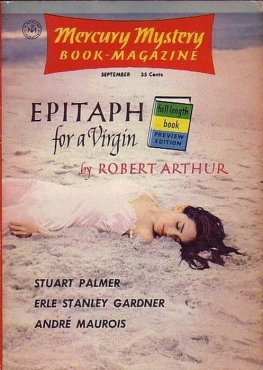
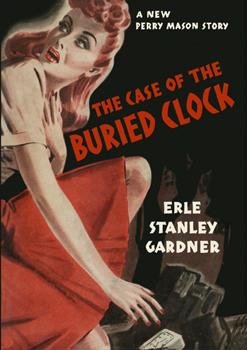
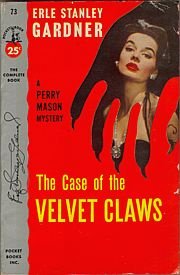
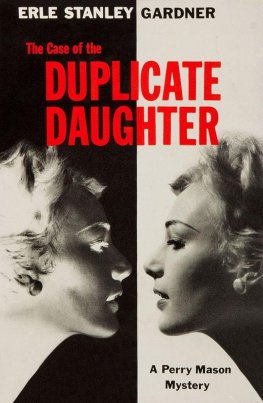
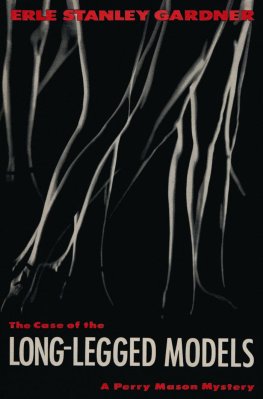
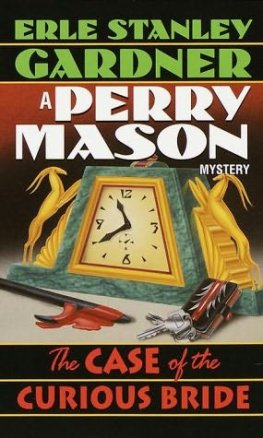
![Erl Gardner - The Case of the Deadly Toy [= The Case of the Greedy Grandpa]](/uploads/posts/book/924181/thumbs/erl-gardner-the-case-of-the-deadly-toy-the.jpg)
